A blast of winter weather has descended from Canada well into the lower 48 United States. Freezing temperatures and winter precipitation are expected as far south as Texas and Georgia. Across the country people are preparing their homes and bracing for freezing temperatures.
What about those who spend the winter months in an RV? What special considerations should RVers be aware of when the outside temperatures dip below freezing?
Here are some winter RV survival tips from That RV Guy. We have learned these tips over the years wintering in our own RV through winter precipitation and single digit (Fahrenheit) temperatures.
Winter RV Survival Tips
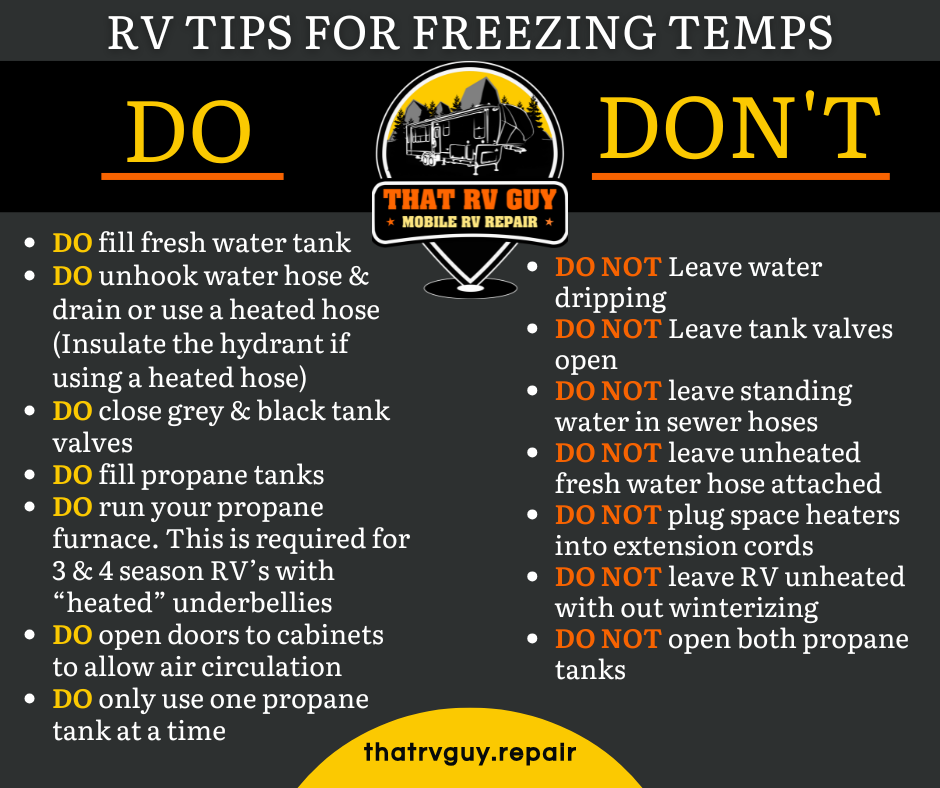
Tip One: Fill your RV’s fresh water tank.
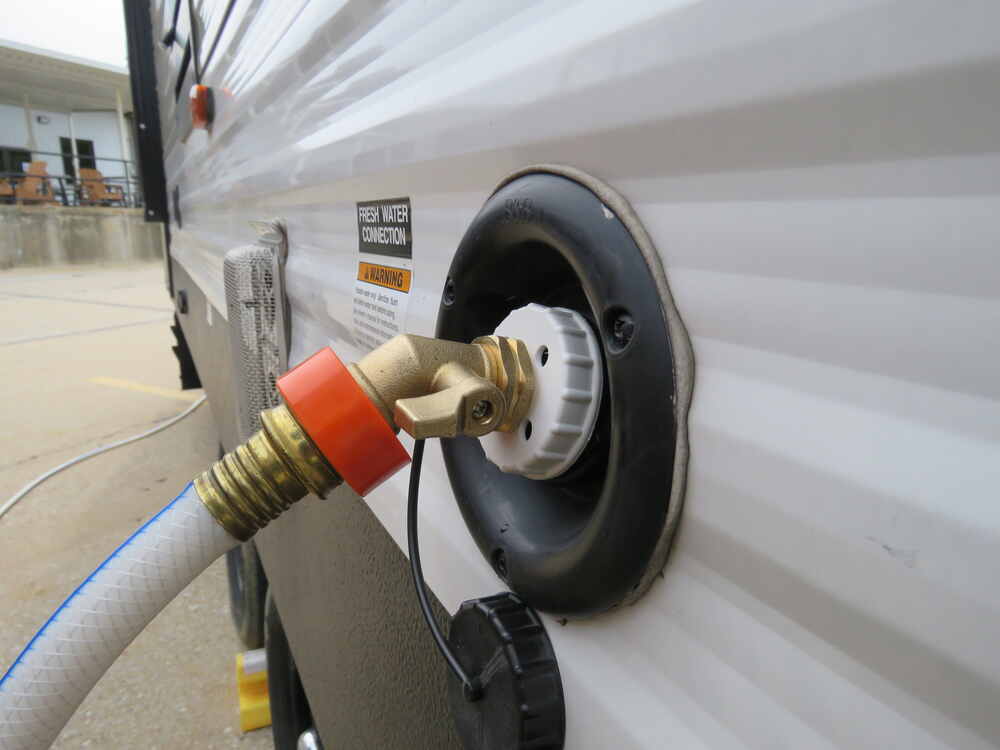
This will allow you to use the onboard water pump. Simply fill the onboard tank, drain your fresh water hose. No need to worry about frozen hoses or hydrants.
(NOTE: A heated fresh water hose will prevent the hose from freezing, but does not protect the hydrant, or the piping to the hydrant that is above ground.)
Tip Two: Close blade valves on holding tanks.

Some people advise leaving the RV’s grey tank valves open and leaving water dripping at the faucets. We do not advise people to do this. Instead we advise campers to close their tank valves, and ensure all water is out of the sewer hoses. Standing water in sewer hoses will freeze into a very large, unsanitary icicle.
Tip Three: Fill your propane cylinders
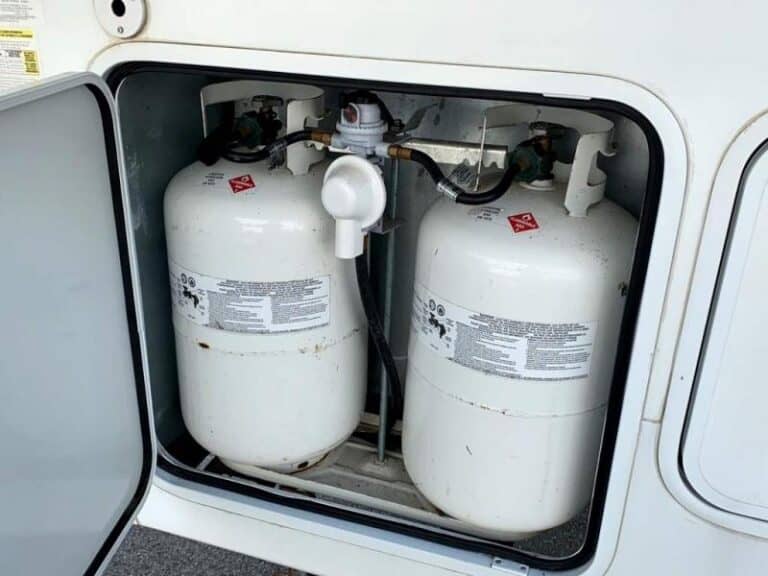
Make sure you have fuel for your furnace before the cold weather hits!
Tips Four: Only open one propane cylinder, not both
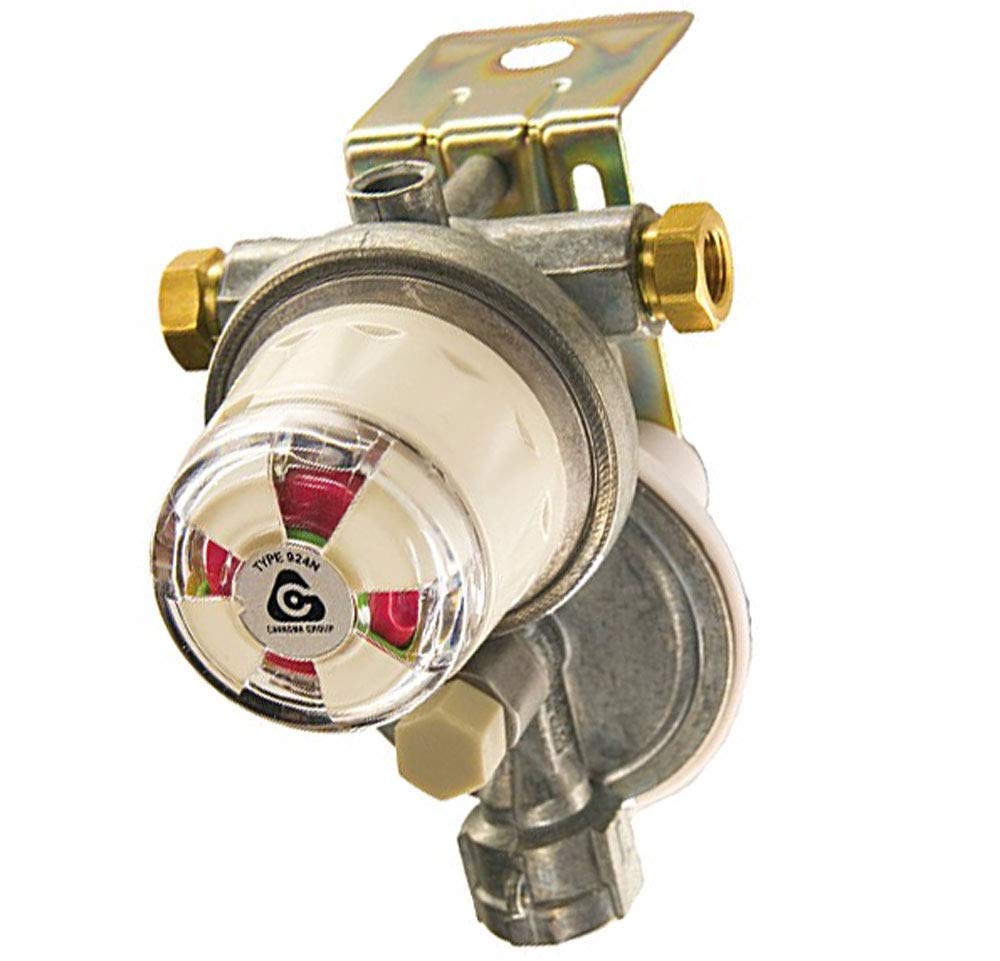
Your RV’s auto-switching propane regulator seems like a handy convenience, but it can lead to an unpleasant experience in winter weather with both cylinders left open.
The propane regulator only allows propane to flow from one cylinder at a time. When the “primary” cylinder is empty, the regulator will switch to the “secondary” cylinder. The regulator indicates when this has happened, but requires the RV occupants to visually check the regulator to know that the regulator has switched over. If the regulator is not checked, and the now empty “primary” cylinder is not refilled, the regulator will empty the “secondary” cylinder, leaving the RV with no propane to run the furnace. This usually happens in the cold, small hours of the early morning.
Tip Five: Operate your propane furnace
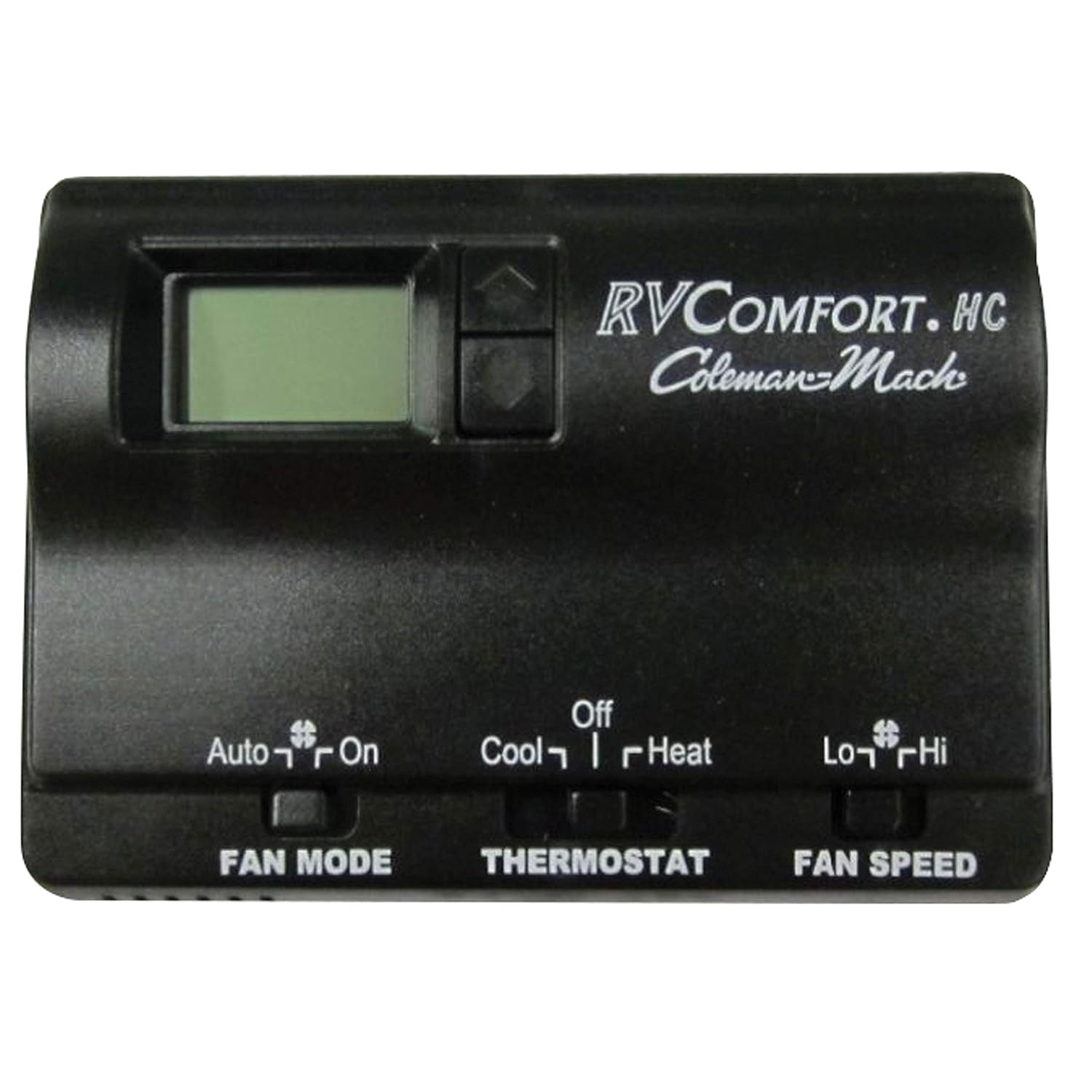
Many travel trailer and fifth wheel style RVs utilize the propane furnace to heat the underbelly of the RV. The furnace duct work often runs between the frame rails of the RV to heat the plumbing and holding tanks. Running the propane furnace will help keep the plumbing in your RV warm.
Tip Six: Open cabinets and doors to improve airflow
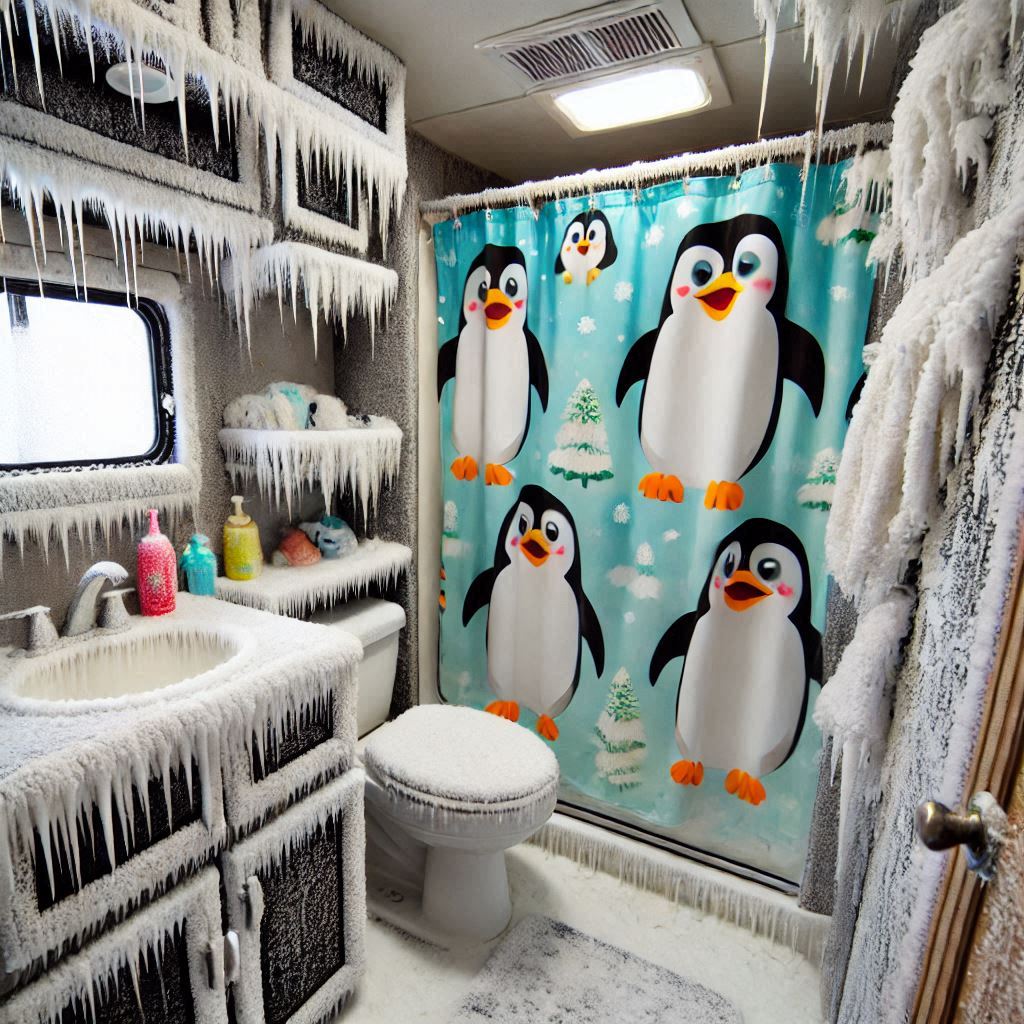
When outside temperatures fall below freezing it is helpful to open cabinets to allow airflow around plumbing. This is especially true for plumbing near an exterior wall.
Some RV bathrooms have poor heating and cooling airflow when the room doors are closed. Toy haulers with a second bathroom in the garage area, or RVs with the bathroom situated at the rear of the RV are also in this category. These rooms benefit when doors are left open to allow warm air to exchange into the bathroom from the rest of the RV.
Tip Seven: Do not use space heaters with extension cords
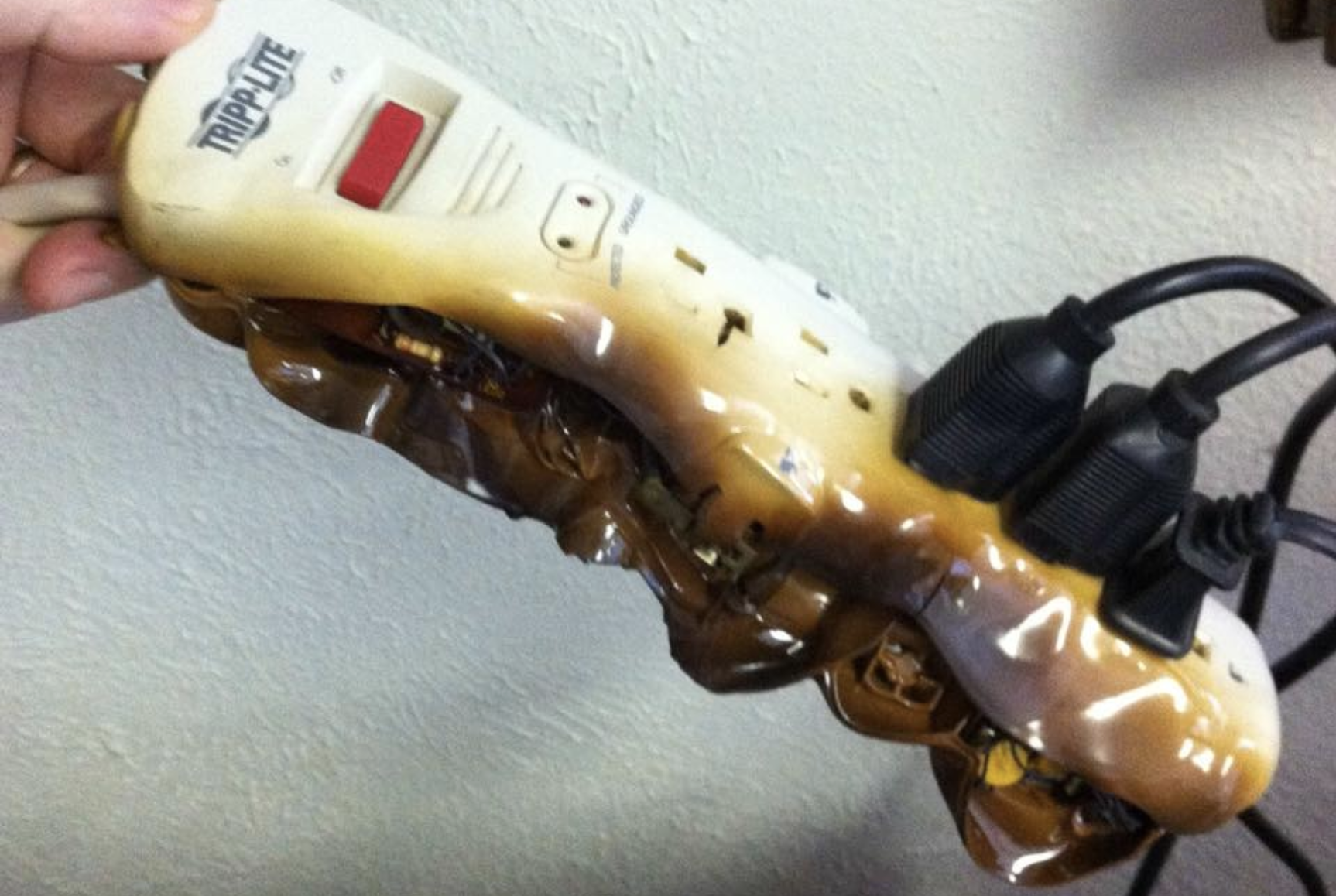
Some RVs today come equipped with an electric fireplace. Using electric space heaters to supplement on cold nights is a fine way to supplement your RVs propane furnace, but only when the space heaters are used safely.
It is important to understand that operating an electric space heater on an undersized extension cord can cause an electrical fire. If you must use an extension cord with your space heater, make sure to use a cord of the proper gauge wire for the electrical load. If you aren’t sure, reach out to us for assistance.
A space heater which repeatedly trips the breaker for the circuit is overloading the circuit breaker. Move the space heater to a different outlet, and remove any extension cords in use.
Tip Eight: RVs are warmer in winter with skirting
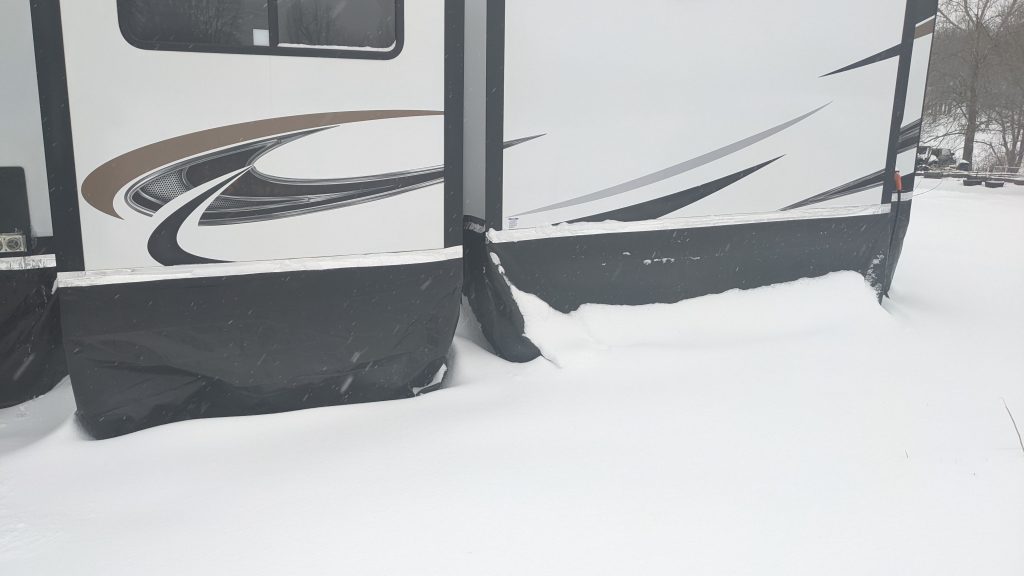
Our first winter RVing included a rather sudden snowstorm accompanied by single digit temperatures. We had just enough forewarning to get make skirts for our RV. For extremely cold weather such as extended periods of hard freezing, skirts for your RV are strongly recommended.
Tip Nine: Winterize your your RV before leaving it unheated
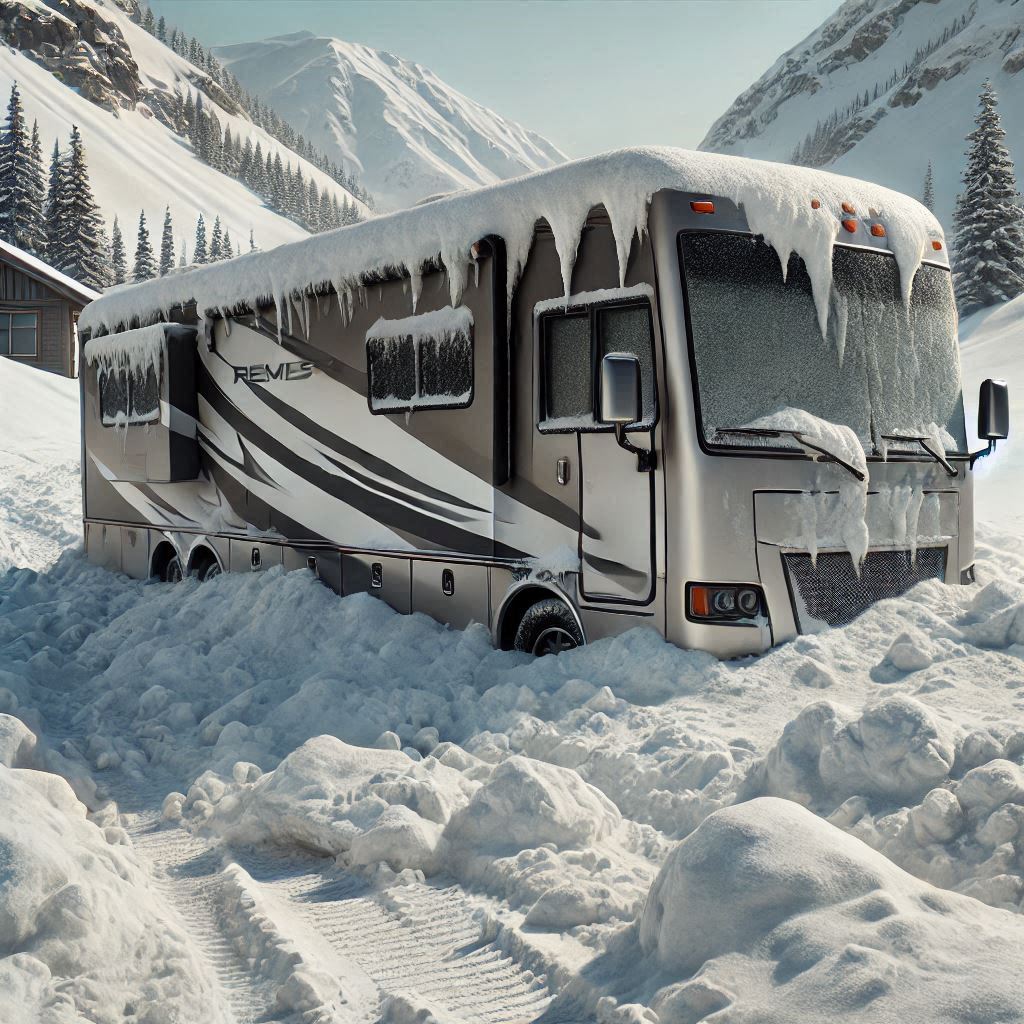
If you will be leaving your RV unheated in an area that is expecting temperatures falling below freezing, it is best to fully winterize your RV. That RV Guy offers winterizing services for all sizes and types of travel trailers, fifth wheels and motor homes. If your RV is in need of winterizing, book an appointment today.
Conclusion
We hope that these winter RV survival tips help you have a freeze-free camping experience.
Stay warm out there!
Leave a Reply